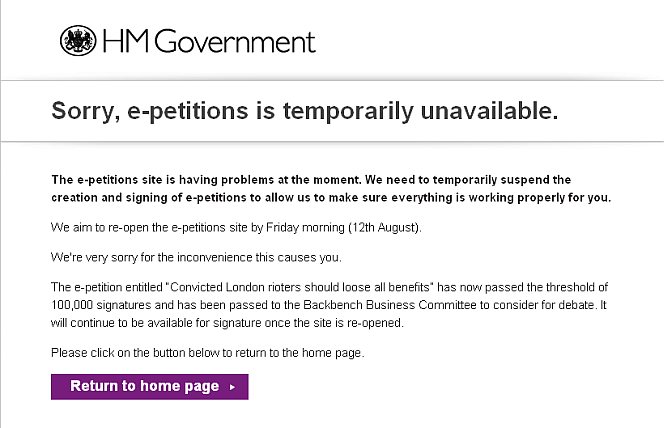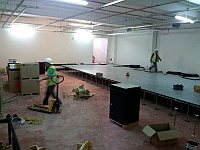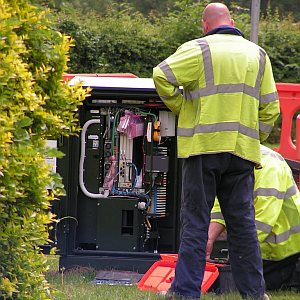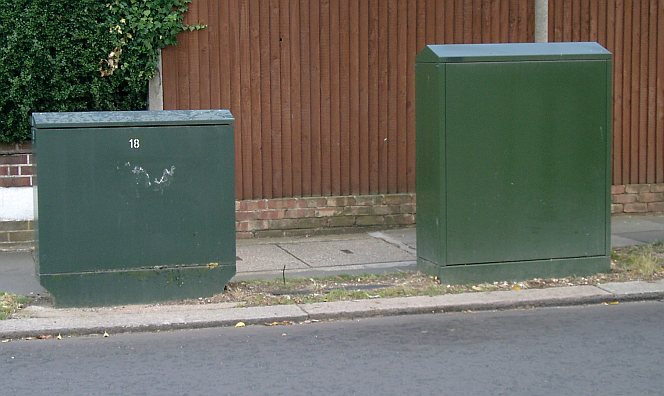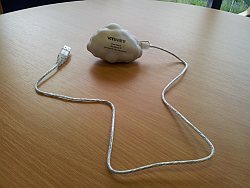
These days I back up all my family photos on both an external hard drive and online on Google+ (it’s free and so far I haven’t hit a limit).
In August I had two holidays. From surfing on the Gower I brought back 2GBytes of photos (not including those I took on the Galaxy S2 which automatically upload when in range of a wifi and most of which had done so before I got home). Wild camping on the Isle of Mull generated 2.4Gigs of media including video.
That’s not only a lot of storage for one month’s activity but it is also a lot of bandwidth used to upload the photos to Google+. Assuming my home ADSL does 1Mbps upload speed, which it doesn’t, and assuming no packet headers, which there will be, it would take me around 10 hours to upload that lot.
In the office I have a 100Mbps connection and the whole of August can be uploaded in the the background in a fairly short time. The bottleneck is probably the Google+ server at the other end though I am not familiar with Google’s i/o speeds for a given account if they have any.
With cloud services the upload speed, long ignored as secondary by the ISP community, is becoming a critical factor. At Timico our ADSL sales into the business sector are still increasing but at nowhere near the rate of Ethernet. Although an Ethernet circuit is of much higher value than an ADSL (or FTTC) line the number of lines is growing nicely.
The first 8 months of this year have seen an increase in Ethernet in the First Mile (EFM) activity levels of 53% over the same period in 2010.
This is happening for a number of reasons. Firstly EFM is more reliable than ADSL and carries a Service Level Agreement. Secondly is the symmetrical performance – EFM can have up to 10Mbps upload as well as download. This combination is important because companies are increasingly using resources in the cloud as part of the day to day running of their business and many of these online resources, such as VoIP, are mission critical.
Large businesses have been using Ethernet for years – they were traditionally the only ones that could afford the cost. They also have the distributed systems and resources that requires the reliability and speed. Now SMBs are moving into the cloud – 48% of those in the UK according to VMware.
This means that there are going to be a lot more customers out there looking for higher upload speeds. At 10Mbps FTTC does bring faster upload but the FTTC footprint is still under construction. In the meantime there are over 2,000 EFM POPs out there (BT and TalkTalk) which probably cover a fairly high proportion of UK businesses.
Coming back to the photos the average size of jpg from my Canon Powershot is roughly 3MBytes – some more some less. This is for a 12Megapixel camera. Looking back 5 years I had a 4 Megapixel camera that produced 1MB jpgs. This suggests to me that in 2016 I will be taking 36Megapixel photos using 9 or 10MB of storage. My 4.4GB August family photo album would be more like 14GB which would still take 3 1/2 hours to upload even if I had a 10Mbps uplink speed.
It is easy to imagine that in 5 years time 10Mbps upload won’t be good enough for home use let alone business and that everyone will be looking for the next level up. It is also easy to imagine that people will find it hard to remember what the world was like before they lived in the cloud.








